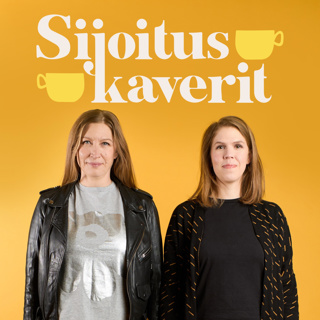
164: Tragic Mistake of Indian US MBA Hiring
This is an important podcast. Many Indian MBA candidates, those without permits to remain in the US post their studies, follow a dangerous strategy for their internship interviews. This podcast offers a very simple but highly effective strategy to ensure candidates keep themselves in the running for consulting offers. Moreover, keeping residency in the US is a vital prerequisite to maintain a candidates "risk profile" and this podcast again offers some ideas.
3 Marras 201313min

163: Declining Bain's CEO Over BCG
It is indeed a rare moment when the Worldwide Managing Partner of Bain calls a client to encourage him/her to accept an offer. We have had similar situations happen on a handful of occasions to clients. It is an accomplishment and should be celebrated. That does not mean the offer should be accepted.
28 Loka 201319min

162: Accenture to McKinsey
Clients we place into McKinsey etc from the so-called tier-2 firms like Booz, Deloitte, KPMG etc always think they will struggle most with the analytic and other technical elements. We see a flurry of activity, and anxiousness to master story boarding model building, brainstorming and hypotheses development. Our advice to these clients is that this should be the least of their worries. The harsh reality is that they have been pre-wired to think about the wrong priorities on soft-issues, and these intangible areas cause more trouble than they could imagine. Many find that very difficult to understand, so here are some stories based on our own clients' experiences demonstrating how the soft issues could betray your ambitions.
22 Loka 201321min

161: Evaluating Your Firm's Training
Too often clients ask the wrong questions when it comes to assessing training at consulting firms: do smaller offices have poorer training, should I attend training as soon as I join, does BCG have better training than Bain etc. When considering training you need to both consider formal and informal training. As we show, formal training is very useful, but not at all for the hard/technical skills it purports to impart on attendees. Informal training, also known as training on an engagement, is most effective when consultants can practice under diverse conditions. In other words, the more you travel and work with foreign teams, the better will be your training. Some firms encourage more global staffing and others far less. That counts.
16 Loka 201313min

160: Building Hypotheses From Data Exhibits
Reading graphs is a perennial problem for many candidates. Yet, the problem is not the interpretation of the graphical data itself. Rather, it is knowing what to do with that data once you have interpreted it. This podcast introduces a simple 4-step process we introduced for a Yale doctoral client, Felix, and a technique called the One-Sentence-Test which we again developed for the same client. The improvement in her answers warrants sharing this technique. You can see Felix's Improvement in Season One of The Consulting Offer.
10 Loka 201313min

159: What is Analytic Thinking Vs Mathematical Thinking
The first podcast discusses a common challenge new consultants face: how to show strong analytic skills on an engagement. Here I discuss one of my earlier engagements as a principal where I managed a very introverted lawyer. Despite her non-quantitative degree, reserved demeanor and being placed on a piece of work which was not, at first, open to much creativity, she developed an eminently analytic way to solve a significant problem impacting the entire engagement. This is probably one of the most concise, tailored and innovative pieces of analyses I had ever seen in my career. What makes a consultant analytic, is not the type of work that lends itself to analytic reasoning, but the way you approach what may seem to be a mundane problem. In fact, no sector or engagement is boring if examined appropriately.
4 Loka 201320min

158: US Postal Case Coaches Detailed Feedback
This podcast answers the questions raised below, by a client trying to understand how to develop hypotheses in a fairly difficult case. The case looks at ways to increase the US Postal Services market share and profitability. The client has graciously allowed this one detailed response and his notes to be shared in our public section. "A big overarching question I have with the answer first approach is I don't know if my initial hypothesis should be broad (in which case they cannot be tested with data unless the hypotheses are first refined and narrowed, so I could only ask what areas I would explore to do that) or alternatively to make my initial hypotheses narrow and precise (in which case I can ask for data to test them but if my hypothesis are wrong then I will be stuck). Any thoughts?"
28 Syys 201329min

157: How to Influence Your Interviewer
In this podcast we will discuss a client who is very good at influencing the way interviewers work with her, and the subtle danger of her approach. A counter-point to this is another candidate who initially completely mismanaged his image, and we discuss the impact of his actions and what happened when he changed.
22 Syys 201323min





















